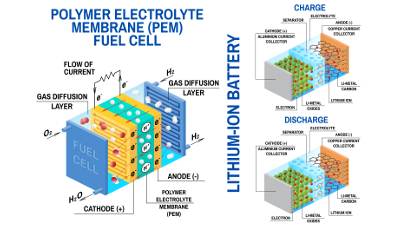
by hiden | Mar 22, 2021 | Blog
Why is Volcano Surveillance Necessary? Volcanoes pose a danger to life in many parts of the world. Eruptions occur relatively frequently, presenting risks to both health and infrastructure. The analysis of gas, liquid, and soil samples offers vital information...

by hiden | Mar 11, 2021 | Blog
Research and development (R&D) into novel energy storage materials is important to improve the utility of energy generated from renewable sources, thereby reducing reliance on fossil fuels, a finite resource. Lithium ion batteries are a central to such...

by hiden | Feb 25, 2021 | Blog
The Beginning of the Lithium Battery For many years, the only suitable battery for portable equipment, such as mobile computing and wireless communications was nickel-cadmium. Pioneer work on the lithium battery began in 1912, however it wasn’t until the 1970s when...

by hiden | Feb 11, 2021 | Blog
What is a Fuel Cell? Fuel cells generate electricity through an electrochemical reaction rather than combustion. Inside a fuel cell, hydrogen and oxygen are combined to generate heat, water and electricity. They represent a clean, efficient, dependable, and quiet...

by hiden | Jan 26, 2021 | Blog
What are Fuel Cells? Fuel cells use the chemical energy of hydrogen or an alternative fuel to cleanly and efficiently produce electricity. Using hydrogen as the fuel only produces water, heat, and electricity. Hydrogen (the fuel) is supplied continuously, unlike in a...







